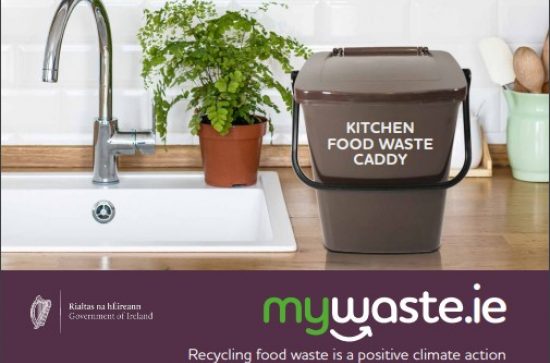
As part of Campus Living Labs (an IUA-EPA initiative) and Southern Waste Region have partnered to bring awareness about food waste on campus.
Every household in Ireland is responsible for 117 kg of food waste per year.
That’s between €400 and €1,000 per household per year thrown into the bin.
And it’s not just a waste of money, it’s also costing the earth. Food waste sent to landfill does not harmlessly break down but instead releases methane, a greenhouse gas 25 times more potent than carbon dioxide.
Where possible we should prevent food waste in the first instance. Top tips to prevent food waste include checking your store cupboard before you shop, have a list, only buy what you need and don't be tempted by special offers on perishable foods.
Do you know that:
- 60% is Avoidable food waste such as plate scrapings, leftovers, gone off fruit and veg and passed date perishables. We can control this waste easily by serving smaller portion sizes at meals times and by shopping smarter
- 20 % is Potentially Avoidable food waste – things like bread crusts, and potato skins. This waste could be used in another way; crusts could be made into bread crumbs and then frozen until you need them.
- 20% is Unavoidable food waste – such as banana skins and chicken bones
The good news is food waste doesn’t have to end up in a landfill. It can be recycled by using your food waste recycling bin. All households living in a population agglomeration >500 people are entitled to a Food Waste Recycling service from their waste collector.
Households with a kerbside collection for food waste can simply separate cooked and raw food and leave the bin out as part of your normal kerbside waste collection so it can be sent to a composting site or to an anaerobic digestion plant to make green energy.
Limited availability. Attendees will need to agree to participate in an informational workshop in the coming weeks.
